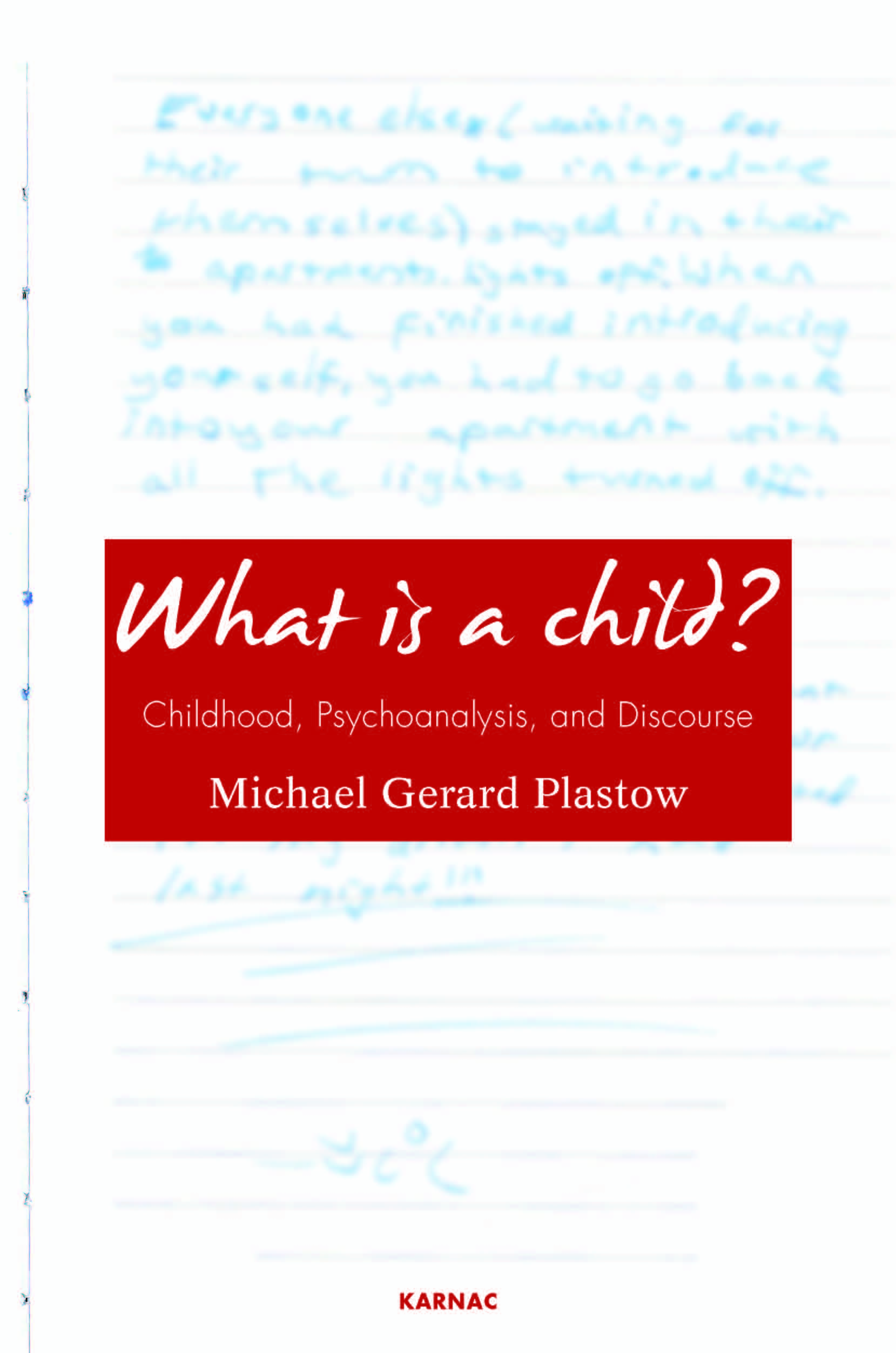What is a Child?: Childhood, Psychoanalysis, and Discourse

Book Details
- Publisher : Routledge
- Published : 2014
- Cover : Paperback
- Pages : 250
- Category :
Child and Adolescent Studies - Category 2 :
Lacanian Psychoanalysis - Catalogue No : 32462
- ISBN 13 : 9781780490557
- ISBN 10 : 1780490550
Reviews and Endorsements
‘Far from rehearsing the tired trope of “the child within”, Michael Gerard Plastow uses his clinical insights to make us see the child outside and in front of us: the child as other, as a historical construction, and as sexualised singularity. Lifting the hood from childhood, this superb book makes the child appear in all his or her radical marginality.’
— Patricia Gherovici, psychoanalyst and author
‘To encounter a child we must be open to surprises. In this book, we move from surprise to surprise, reading and thinking with Freud, Rousseau, Condillac, Lacan, Foucault, and so on. The purpose of the book is not to build a whole science of the child, but to encounter the "hole" in the history, a history that claims to encompass the child. The emergence of the child as a subject is the moment of a fall from Paradise. The child is then stained by “original sin”; in other words, the questions of sex and death. The child is by no means a natural concept, but rather, a fact of discourse. This book will not just appeal to those working with children, but to anyone with an interest in psychoanalysis. Michael Gerard Plastow pursues his argument concisely and rigorously, without unnecessary recourse to jargon or technical terms. Through the clarity of his thinking and the quality of his writing, this book is accessible to all those in related fi elds of practice.’
— Christian Fierens, psychoanalyst
‘In this remarkable book, Michael Gerard Plastow convokes us to resolve an enigma: what is a child? Those who might expect an answer in general terms will be disappointed, as, for the author, it is not a question of examining a generalisation, but rather each child taken in his or her singularity. In effect, there is a radical difference between the child as spoken by those around it, and the discourse of each child. The strength of this work lies in the clinical practice of the author that emerges from each page: step by step, we follow him through the turpitudes of this “other”, the child who very fortunately escapes from being objectified by the world that surrounds him, and in particular by a certain developmental psychology. Plastow invites us to understand to what extent the "illegitimacy" of infantile sexuality situated the child, from the outset, as "illegitimate", a stranger to his own field, even if a certain theory of "stages" might have wanted to reclaim a place for him. The merit of this work is to restore to the child his place as “sexual subject” and, more broadly, as subject. Finally, we follow the author through the different versions of the child’s symptom that are considered here as being essentially tied to the family dynamic.’
— Robert Lévy, psychoanalyst

